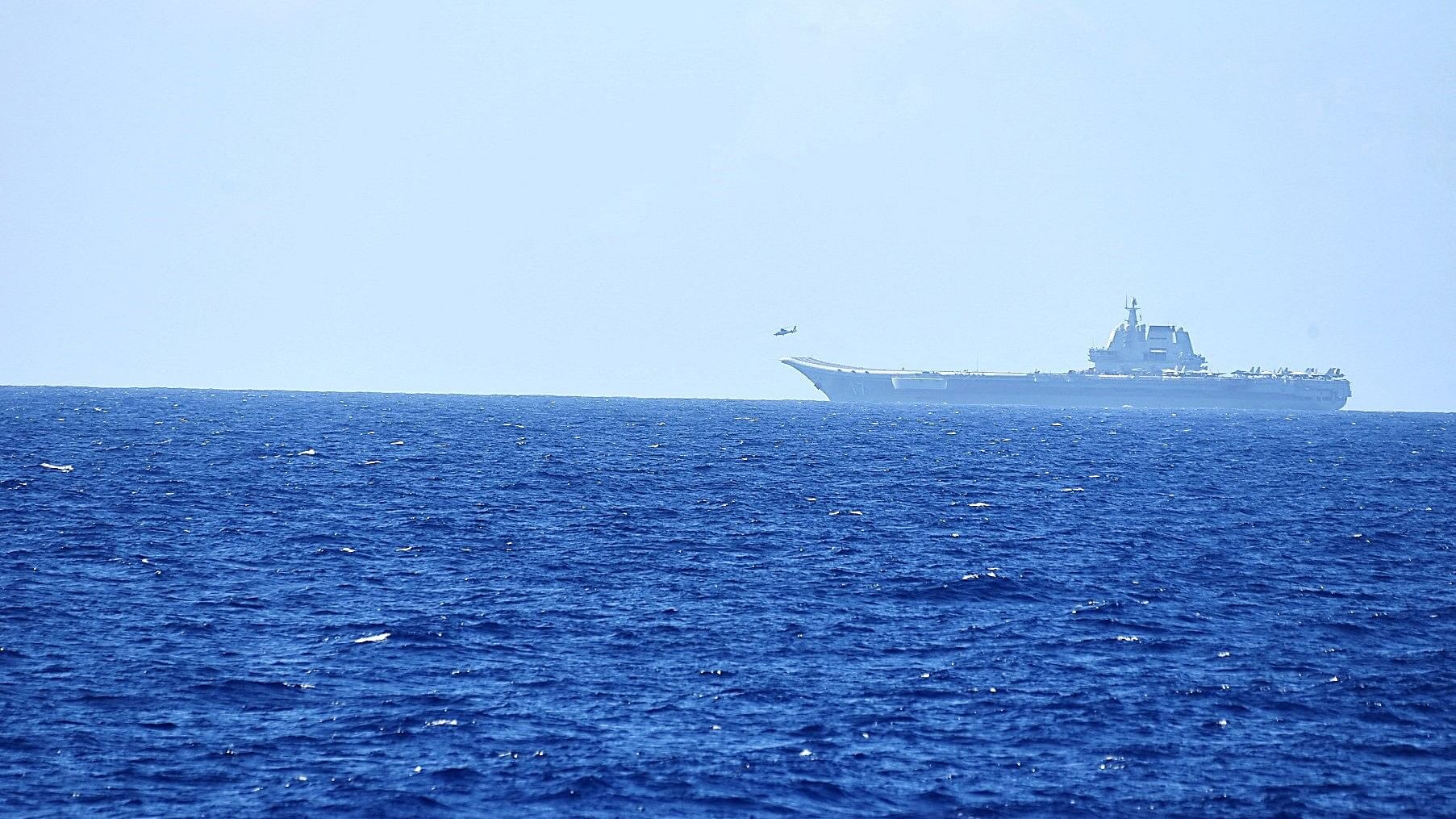
Representative image showing Pacific Oceam.
Credit: Reuters Photo
By David Fickling
In a region that’s used to being taken for granted by its neighbors, it’s remarkable what a little agency can achieve.
That’s what the governments of Pacific island states realised in recent years, as a long-simmering diplomatic contest between China and Taiwan morphed into a new front in the great power rivalry between Beijing and Washington.
An April 2022 security pact between China and the Solomon Islands — an underdeveloped, mountainous archipelago to the east of Papua New Guinea — caused the world to sit up and take notice. The prospect of Chinese troops operating less than 2,000 kilometers (1,250 miles) from the coast of Australia, which has been the main provider of security and aid for the Solomons for two decades, crystallised existing concerns about Beijing’s presence.
The response was rapid. Australia’s Foreign Minister Penny Wong chose Fiji for her first overseas trip after winning elections the following month. By July, US Vice President Kamala Harris had become the first member of the White House to make a live address to the Pacific Islands Forum, a summit of regional leaders. This year’s annual meeting ends Friday.
That hasn’t been enough to halt Beijing’s advance. Island governments have largely welcomed the long-overdue attention. This January, Nauru became the latest to switch its diplomatic relations from Taiwan to China. Slowing further encroachments will require listening to the concerns of island governments, in particular on what they see as their foremost diplomatic issue: Protection against a climate crisis that threatens their very existence as nations.
Pacific states tend to be disproportionately poor, remote, low-lying, and situated in the path of devastating cyclones whose intensity will worsen as the planet warms. As a result, climate isn’t just a concern for bien-pensant foreign NGOs, but a number-one priority for political leaders. That makes the Pacific’s outlook very different to that of a nation like India, which has long fretted about whether development or the environment should come first. To the Pacific, the two are inseparable. Climate change performs a similar role in holding back development as malaria and other diseases in sub-Saharan Africa.
Each cyclone season leaves in its wake smashed houses, schools, churches and clinics. Cyclone Pam, a Category 5 storm that swept through Vanuatu and neighboring countries in 2015, left costs equivalent to nearly two-thirds of the tiny country’s gross domestic product. Bleached corals caused by warmer water damage the pristine sea life that islands depend on to attract tourists from afar. Bleaching also degrades the barrier reefs that protect fragile atolls from damaging waves, causing the land itself to be washed away.
The governments of Joe Biden and Australian Prime Minister Anthony Albanese have done far better than their predecessors in placing climate front and center. But that is only the price of entry for outside politicians who want to be taken seriously when talking to the Pacific. Both Australia and the US expect their emissions to increase modestly this year. Neither is remotely on track to achieve the large reductions that will be necessary to spare island nations.
There is an opportunity here, as my colleague Andreas Kluth has written, but it may be fleeting. Diplomatic rival China is far from a climate leader. On its own, it’s responsible for more greenhouse pollution than all the world’s rich democracies put together. Neither is it a particularly generous provider of the aid island governments need to patch up the mounting damage from climate disasters. Though there are no official numbers, a recent Japanese study estimated development aid was between $5 billion and $7.9 billion in 2022, not much more than one-tenth of what the US dedicates, and roughly on a par with Australia and New Zealand.
If China has made headway in the Pacific in recent years, it’s often been because it has fewer scruples about dealing with officials that their own citizens perceive to be corrupt. (In a 2021 survey, 61 per cent of islanders said corruption was a major problem, while a third reported having to pay bribes and a quarter said they’d been offered money in return for their votes.)
Diplomatically, it’s made flat-footed attempts to circumvent the Forum and exclude Taiwan. The main result of this week’s event has been a policing agreement that looks like a rejection of the 2022 China-Solomon Islands pact — a slap in the face to Beijing.
Still, Washington, Canberra and Wellington would be unwise to count on China always being as maladroit as those three incidents would suggest. Its emissions may be at their peak, and its renewable technology exports provide an opportunity to wean island economies off imported diesel and gasoline. In a wildly diverse region, there are quite as many island governments that have welcomed the contest for their diplomatic favor as have spurned Beijing’s overtures.
Pacific leaders want to see allies that listen to their priorities on climate, development and migration. If their larger neighbors can’t match those words to actions, they’ll look to other partners instead.